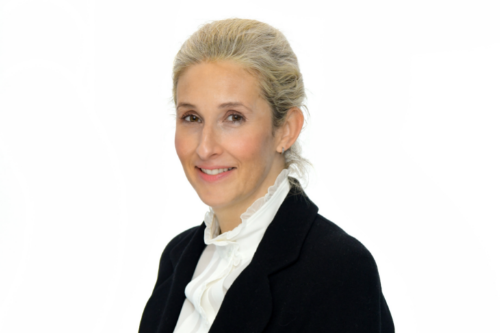

It stands to reason that no two people will have exactly the same experiences when crafting themselves a career, a trajectory shaped by a variety of factors that go beyond any single characteristic – be that age, race, gender or economic background. Cécile Fresneau (pictured) managing director, insurance division at QBE European Operations, highlighted how important it is to recognise that people’s experiences are very specific to them.
“I only know what shoes I walked in and how I’ve made it work for myself,” she said. “It doesn’t mean that there’s only one model, there are probably lots of different models for accessing that. But I think what’s important is sharing personal experiences and allowing other people to find their way and pick out what they think is going to work for them or not work for them.”
Fresneau first joined the insurance profession about 20 years ago, having previously worked in other industries and noted that during those two decades she has seen conversations around diversity, equity and inclusion (DEI) evolve quite significantly. When she started work in the early 90s, she said, related issues tended not even to be mentioned let alone actively discussed and there were certain kinds of inequity that was often accepted simply as the way things were done.
It has been an interesting transition to see, she said, as conversations have gone from not happening at all, to happening because more people felt they ought to be had, to now where they are increasingly been viewed as the right thing to do. The intent around DEI has really changed and these discussions are increasingly opening up to include people from all walks of life. And while a lot of objectives around true inclusively remain in the aspiration phase, the intent is there, the will is there, and more people are looking to have open conversations without these being imposed upon them.
As the chair of QBE’s Inclusion Forum, Fresneau knows what it means to bring together networks across the gender, LGBT, disability, ethnicity and mental health spectrum and emphasised the importance of workplaces taking advantage of the experiences and ideas that a diverse makeup enables. Veering away from a siloed approach to DEI is an essential part of accessing new insights as everybody contributing to initiatives and conversations will bring something new to the table.
“So the shoes I’ve walked in are of the gender [discussion],” she said, “and when I spend time talking to people who come from a particular ethnic background or sexual orientation, obviously we all have very different experiences and issues that have been thrown at us through our careers or have faced different types of microaggressions. But the common denominator across all those groups is that feeling of not being accepted, of being different, of not knowing how to navigate when you look around and don’t necessarily see people like you role modelling what a career would look like.
“So, I think despite the very different circumstances, and nature of challenges and microaggressions in the day to day, the common denominator is feeling like one doesn’t quite fit in and trying to find a way through anyway. And I think there’s more commonality between all those groups than might appear initially if you just look at the individual, very specific context and challenges.”
Undeniably some groups face more challenges than others, she said, but having a holistic approach to inclusion is not about discounting specific challenges, but rather finding shared concerns. Therefore, when it comes to thinking about HR policies, or how to support career progression or mentoring, the solutions developed can target change in these areas for maximum effect.
This was the thought process behind QBE bringing all those networks together for its broader inclusion forum, she said. What the forum has found is that by pulling its forces together, there is more ability to make change that has a bigger impact when people aren’t attempting to resolve the same dilemmas across multiple separate networks.
Fresneau, who will be speaking at the upcoming Women in Insurance UK conference as part of a panel discussion on ‘Choosing Resilience’, highlighted her own passion for facilitating discussions around DEI and the future of talent in the insurance industry. Having come up through the ranks, she said, she would love to make it easier for other people to do so well and have a tangible positive impact on future talent.
“I want to be able to show people that if I’ve done it, it’s accessible to others as well,” she said. “And so just being able to share what I have found through my career and making sure that where I can influence [… ] internal policies and culture, I do – that’s very close to my heart.”
Book your place now: Women in Insurance UK 2021
